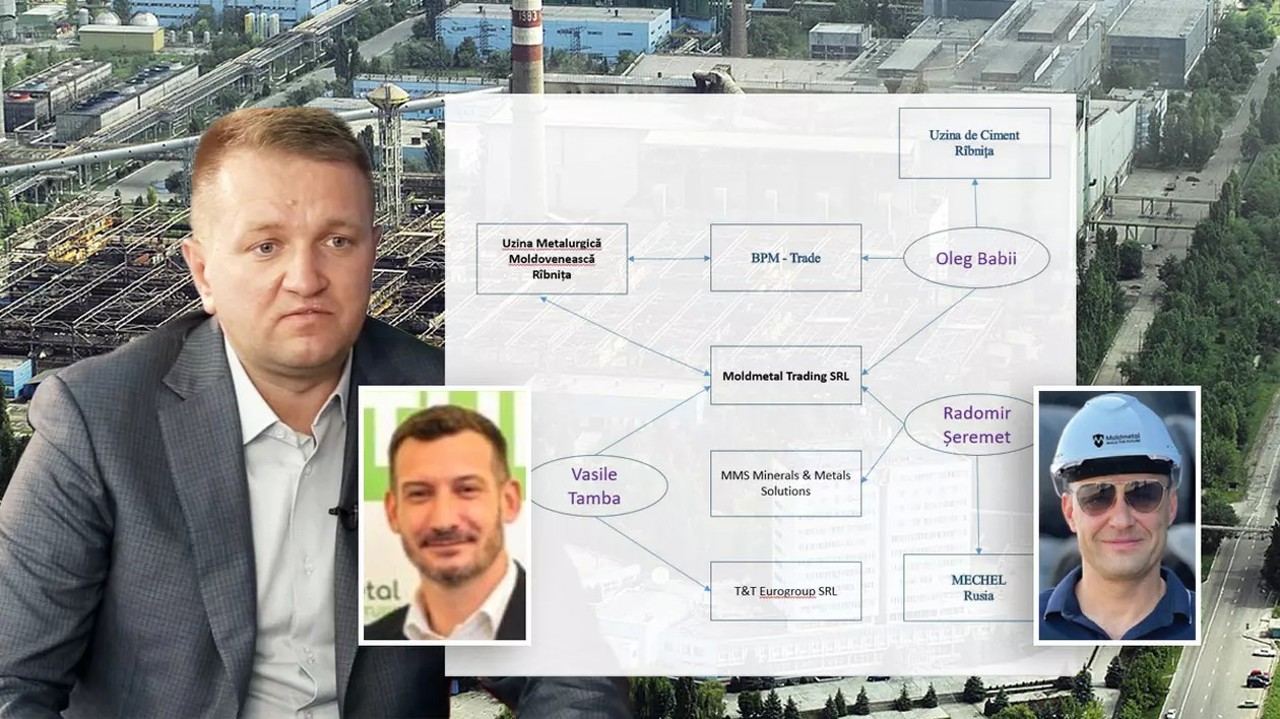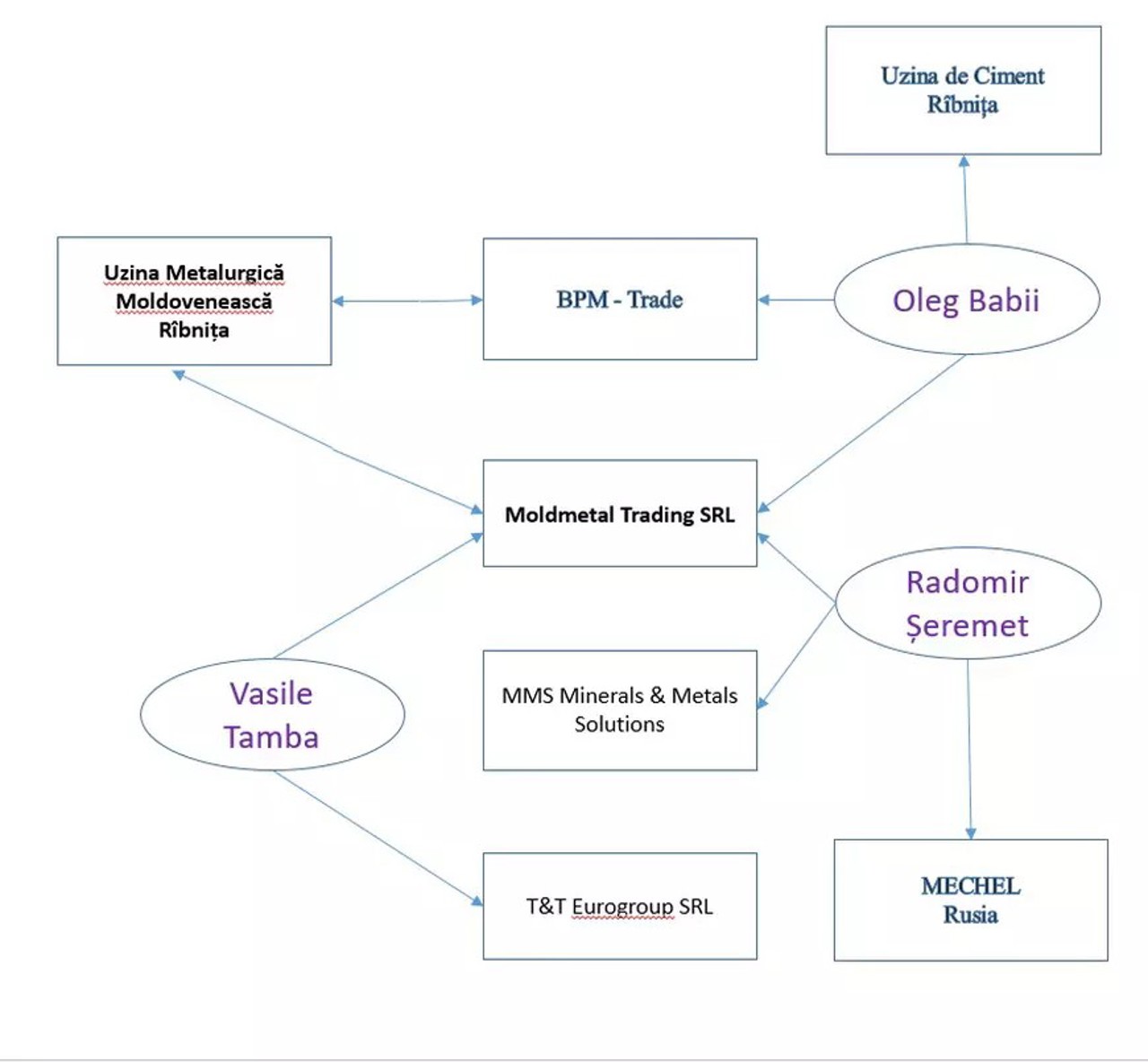Moldovan businessman in Romania may support Tiraspol's regime

Oleg Babii, a businessman originally from Ribnita, is considered one of the most influential entrepreneurs in the metallurgical field, who indirectly contributes to the economic support of the Tiraspol regime. According to a 2014 Libertatea investigation, Babii created a network of companies in Romania that sell metallurgical products and cement from the left bank of the Nistru, thus supporting two key plants in the region.
BPM-Trade: start of the business
In 2013, Oleg Babii founded the company BPM-Trade in Rîbnița, later moving its headquarters to Chișinău. The company deals with the valorization of metallurgical rolled products, cement, concrete and other products from factories controlled by the separatist regime. The acronym “BPM” comes from the name of his father, Babii Piotr Mihailovici, former director of the Cement Factory in Rîbnița and considered close to the alleged authorities in Tiraspol.
Expansion in Romania: Moldsteel and Moldmetal
In 2014, Oleg Babii entered the Romanian market, establishing the company Moldsteel Trading SRL together with the Moldovan Radomir Șeremet. Later, the company was renamed Moldmetal Trading SRL, by co-opting the Romanian Vasile Tamba. All the companies created operate at the same address and are active in the field of metallurgical products trading.
According to Libertatea, this network of companies would keep factories in the Transnistrian region operating, contributing to supplying the Tiraspol regime with foreign currency.

Romania, a major source of raw materials for the left bank of the Nistru
In Iași County, in Holboca, companies controlled by Babii own a logistics center for steel products. It would supply raw materials, especially metal scrap, to the metallurgical plant in Rîbnița, becoming the main supply channel after the embargo imposed by Ukraine in 2018.
Although the European Union banned the export of metal scrap to the Republic of Moldova, the Government in Chișinău issued a temporary authorization in 2022 to resume trade, later requesting the EU to relax restrictions.
Energy supply: Russian gas through Budapest
In January 2025, the plants in Rîbnița were forced to suspend their activities due to the gas crisis, after the Tiraspol administration refused a European grant.
The necessary gas was allegedly delivered through the Swiss company MET Gas and Energy Marketing AG, a consortium with previous ties to the Hungarian government and internationally sanctioned Russian entities.
Profits on the rise in Romania
The companies founded by Babii in Romania have recorded consistent profits. In 2023, Moldmetal Trading SRL reported almost 12 million Romanian lei in profit, and MMS Minerals & Metals Solutions SRL approximately 9 million lei.
The companies have also been involved in insolvency proceedings, acquiring millions of lei of receivables from the Oțelul Roșu plant, some of which came from offshore companies or companies controlled by Russian and Moldovan citizens.
Offshore associations and suspicions of money laundering
The Libertatea investigation shows that Oleg Babii was associated with an offshore company in Scotland, Prime Steel Holding Ltd, founded by two Belizean companies – entities that have been circulating in investigations into alleged money laundering networks linked to former Ukrainian President Petro Poroshenko.
Several international banks have reported suspicions of transactions worth tens of millions of dollars through these structures, with some of the funds reaching, according to journalistic sources, pro-Russian religious organizations in Ukraine.
Who controls the Moldovan Metallurgical Plant?
Although theoretically under the jurisdiction of the Republic of Moldova, the Moldavian Metallurgical Plant is practically controlled by the so-called Transnistrian administration, with all its revenues being directed to the budget of the separatist region.
Previously, the plant was owned by Russian oligarch Alisher Usmanov, close to the Kremlin. Currently, there is speculation that the plant is under the control of the Russian secret service FSB, but this information has not been officially confirmed.




